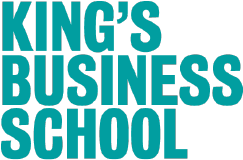
The changing face of King’s
King’s Business School: Connecting people to possibilities
Professor Stephen Bach, Executive Dean of King’s Business School, reflects on his research and how the School’s curriculum reflects a rapidly changing modern-day workplace.
The future of work is fundamental to what we as a business school are thinking about. COVID-19 is reshaping norms right as we speak, but it was already clear that people at the start of their careers expect a working environment that is radically different from the experience of earlier generations.
This is reflected in several ways: people are increasingly keen to express their identity in the workplace. One example of this is the trend towards a relaxation of dress codes, including in major investment banks like Goldman Sachs. Now, many more of us are being forced to discover whether we put on our professionalism with our work clothes. I personally find this area very interesting: my research focus has been on contemporary human resource trends and one of the first projects I carried out in my career was a study with the NHS, looking at the different uniforms they used and how patients responded to them.
The nature of leadership is also changing. We are moving towards an era of organisations focusing on the importance of interpersonal skills, giving employees a broader sense of purpose and becoming more socially conscious and connected to the community. At King’s Business School, this is not just reflected in the content that we teach, but also in the way that we teach. We give our students opportunities to learn through experience, to apply their knowledge, and to collaborate and experience and overcome setbacks in real-world teams. For instance, we’ve introduced a consultancy module in partnership with the Westminster and Lambeth councils that allows students to make a contribution to the communities around us by acting as consultants to small businesses. You can find out more in the video on this page.
We sometimes talk about leadership as a ‘soft skill’, but I don’t like that phrase. Quite often, the hardest thing people do in their jobs is managing others. There’s also another important dimension to this: with the advent of advanced artificial intelligence, we should be considering what makes humans distinctive in what we can offer. I believe a key part of this is the effective blending of human and technical skills like coding, programming and financial analytics that we are teaching our students.
Is there anything you'd like to share?
We love to hear what our readers have to say about King’s Intouch Online so we can incorporate your feedback into future issues. To share your opinions fill out our feedback form.
Feedback form